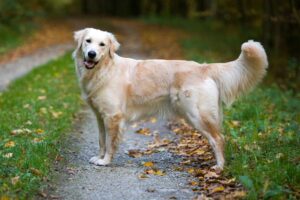Dogs, dubbed “man’s best friend,” have been by our sides for thousands of years. They have evolved into an astounding variety of breeds over this period, each with its own distinct qualities and talents. Some of these breeds stand out not only for their physical characteristics but also for their exceptional intelligence and versatility.
Introduction
In this in-depth article, we will delve into the details of some of the smartest dog breeds in the world, learning about their history, abilities, and roles in our lives.
Canine Intelligence Spectrum

Before we get into the details of the most intelligent dog breeds in the world, let’s first define canine intelligence. Dog intellect is a range, not a one-size-fits-all trait. Stanley Coren, a well-known canine psychologist and professor, has classified dog intelligence into three categories: innate, adaptive, and working/obedience intelligence.
Instinctive Intelligence: A dog’s innate aptitude to execute tasks for which they were bred Herding dogs, for example, excel at herding naturally, but retrievers thrive at retrieving. Breeds with a high level of instinctual intelligence understand their duty and are quick to adapt.
Adaptive Intelligence: Adaptive intelligence is a metric that assesses a dog’s capacity to resolve problems on their own, learn from their environment, and adapt to novel circumstances. Dogs with high adaptive intelligence may solve problems on their own and rapidly.
Working/Obedience Intelligence: This is the intelligence most commonly associated with trained canines. It assesses a dog’s capacity to obey directions and complete tasks assigned to them by their owners. Working/obedience intelligence breeds are rapid learners and highly trainable.
Most Intelligent Dog Breeds in the World
Now, let’s look at some dog breeds that excel at intelligence and flexibility in all of these categories.
- Border Collie: The Herding World’s Genius

Instinctive Intelligence: Border Collies are well-known for their superior herding instincts and are considered among the smartest dog breeds in the world. They were bred to herd sheep and other livestock on the border between Scotland and England. Their capacity to control animal movement is nothing short of amazing, making them an excellent choice for shepherds and farmers.
Adaptive Intelligence: Border Collies have exceptional adaptive intelligence. They are noted for their problem-solving abilities and their ability to handle complex tasks with ease. Because of their high energy levels and intelligence, they make excellent competitors in dog sports such as agility and obedience.
Working/Obedience Intelligence: Border Collies are among the easiest dog breeds to train. They are capable of learning a wide range of commands and tasks, and their devotion to their owners is unrivaled. Border Collies consistently shine in obedience events, demonstrating their exceptional working intelligence.
- Poodle: The Renaissance Canine

Instinctive Intelligence: There are three sizes of poodles: standard, miniature, and toy. They all have one thing in common, regardless of size: exceptional instinctive intelligence. They are renowned as one of the most intelligent dog breeds in the world. Poodles, which were originally bred as water retrievers, have an innate love of water and are excellent swimmers. Their retrieving instincts are still strong, making them popular waterfowl hunters.
Adaptive Intelligence: Poodles are quick learners who adapt well to new situations. Their intelligence goes beyond their physical abilities; they excel at canine sports and are well-known for their problem-solving abilities.
Working/Obedience Intelligence: Poodles are frequently ranked as one of the top breeds for working and obedience intelligence. They thrive on mental stimulation and respond well to training. Their versatility extends to roles such as service dogs and therapy dogs.
- German Shepherd: The Ultimate Working Dog

Instinctive Intelligence: German Shepherds were initially bred as herding dogs, and their natural herding instincts are still present in many individuals. However, they are arguably best recognized for their variety of job roles. They excel in police work, search and rescue, and as guide dogs for the visually impaired.
Adaptive Intelligence: German Shepherds are one of the smartest dog breeds in the world. They are quick thinkers and adapt well to different situations. They are commonly used in high-stress circumstances where their problem-solving abilities show. Whether it’s navigating complex search scenarios or apprehending suspects, German Shepherds are up to the task.
Working/Obedience Intelligence: German Shepherds consistently rank near the top in obedience and working intelligence. They are incredibly loyal and dedicated to their owners, making them ideal for roles that require strict obedience and reliability.
- Golden Retriever: The All-American Companion

Instinctive Intelligence: Golden Retrievers are natural retrievers, as their name suggests. Originally developed to recover waterfowl, their gentle tongues and fondness for retrieving make them wonderful companions for hunters. Their gentle nature and willingness to please also make them outstanding therapy dogs.
Adaptive Intelligence: Golden Retrievers are known for their adaptability. They thrive in various roles, from being family pets to excelling in obedience and agility competitions. Their friendly and easygoing disposition makes them a favorite in households with children.
Working/Obedience Intelligence: Golden Retrievers are eager to please and highly trainable. Because of their dependable working intelligence, they excel at obedience training and are frequently used in search and rescue missions.
- Belgian Malinois: The Unseen Hero

Instinctive Intelligence: Originally bred as herding dogs, Belgian Malinois have gained fame as one of the top choices for police and military work. As one of the most intelligent dog breeds in the world, their inherent instincts, including herding and defending, have been used to perform a variety of activities.
Adaptability: Belgian Malinois are quick on their feet and easily adapt to changing surroundings. Their capacity to make split-second decisions in high-pressure situations makes them indispensable for tasks like police K-9 units and bomb detection.
Working/Obedience Intelligence: Belgian Malinois are easy to teach and excel at obedience. They are known for their steadfast loyalty and dedication to their handlers, which is essential in the rigorous worlds of law enforcement and military service.
- Australian Shepherd: The Resourceful Rancher

Instinctive Intelligence: Despite their name, Australian Shepherds were developed in the United States and were originally raised to work on ranches. Their natural herding instincts make them great at livestock control, and their agility is unrivaled.
Adaptive Intelligence: Australian Shepherds are problem solvers who thrive in dog sports such as agility and obedience. They appreciate mental challenges and flourish when supplied with difficulties to solve.
Working/Obedience Intelligence: Australian Shepherds are highly trainable and eager to please their owners. Their loyalty and work ethic make them important assets in herding, search and rescue, and numerous dog sports.
Versatility of Versatile Breeds

Intelligence alone does not make a breed adaptable; it’s the combination of intelligence and adaptability that allows certain breeds to thrive in varied tasks. Here are some significant aspects that contribute to the adaptability of these breeds:
Trainability: Intelligent breeds are usually highly trainable. They not only learn orders rapidly but also retain what they’ve learned and apply it well.
Problem-Solving Skills: Versatile breeds generally demonstrate great problem-solving ability. This permits them to handle varied situations and adapt to various activities.
Energy Levels: Many intelligent and versatile breeds are highly energetic, which makes them suitable for physically demanding roles and activities.
Loyalty and Bonding: These breeds tend to create deep ties with their owners, which is vital in roles that require trust and reliability.
Versatile Skills: Whether it’s herding, hunting, search and rescue, or simply being a loving companion, these breeds can excel in multiple roles.
Human-Canine Relationship

The bond between humans and dogs is truly amazing. For thousands of years, dogs have been our companions, protectors, and helpers. The intelligent and adaptable breeds discussed in this article are the pinnacle of this unique collaboration.
- Roles in Modern Society

These intelligent and adaptable breeds play a variety of roles in modern society:
Search and Rescue: German Shepherd, Belgian Malinois, and Australian Shepherd breeds are frequently used in search and rescue activities. Their agility, intellect, and loyalty are crucial in locating missing people in difficult situations.
Police and Military Work: Belgian Malinois and German Shepherds are frequently used in police and military work. Because of their sharp senses, obedience, and fearlessness, they are excellent at apprehending suspects and detecting threats.
Therapy and Assistance: Poodles and Golden Retrievers are popular selections for therapy and assistance dogs. Because of their gentle demeanor, high trainability, and sensitivity, they make wonderful companions for those with special needs.
Herding and Farm Work: Border Collies and Australian Shepherds are still excellent herding dogs on farms and ranches. Their innate herding abilities assist farmers in properly managing animals.
Canine Sports: Many of these breeds, such as Border Collies, Poodles, and Australian Shepherds, excel in dog sports such as agility, obedience, and flyball. They are top competitors in various activities due to their intelligence and athleticism.
- Lifetime Relationship

These breeds build strong ties with their owners aside from their professional roles. Trust, love, and shared experiences underpin the human-canine bond. Owning an intelligent and adaptable breed frequently results in a satisfying and rewarding relationship.
- Sustained Ownership

While these breeds’ intellect and versatility make them alluring, it’s vital to remember that they also require proper ownership. Here are some important factors to consider if you want to introduce one of these breeds into your home:
Exercise: Many of these breeds have strong energy levels and need adequate exercise to stay happy and healthy. Prepare yourself for daily walks, playing, and cerebral stimulation.
Training: These breeds thrive on mental challenges, but they also require constant training and socializing from a young age. Positive reinforcement approaches work best with clever breeds.
Socializing: Proper socializing is necessary to prevent behavioral disorders. Expose your dog to diverse people, animals, and settings to help them grow up well-adjusted.
Healthcare: Regular veterinarian treatment is vital to discover and manage any health issues early. Some breeds are prone to specific health problems, so be aware of the potential risks.
Time and Attention: Intelligent breeds often build close ties with their owners and can suffer from separation anxiety if left alone for lengthy periods. They thrive on human interaction and affection.
Respect Their Nature: While these breeds can succeed in numerous tasks, it’s crucial to respect their natural impulses. Herding breeds, for example, may try to herd your children or other pets, so be aware of their habits.
Note: There might be affiliate links mentioned here. We may receive a commission if you purchase a product through an affiliate link. There is no additional charge for you. Please do your own research before making any online purchases.
How Should a Family Choose an Intelligent and Versatile Dog Breed?
Choosing an intelligent and adaptable dog breed for your family is a big decision that should be made thoughtfully. The proper breed can bring your family joy, companionship, and even practical benefits, whereas the wrong type might cause annoyance and stress. Here are some guidelines to help you choose the best intelligent and adaptable dog breed for your family:
- Determine the Lifestyle and Needs of Your Family

- Think about the size of your family, including the ages of your children and any other pets.
- Assess your family’s level of activity. Do you prefer a more active lifestyle that includes regular outside activities, or do you prefer a more calm, indoor-oriented lifestyle?
- Consider your living conditions. Do you have a big yard, or do you live in an apartment or a house with little outdoor space?
- Take into account any allergies or sensitivities in your household, since some breeds are more suited to allergy sufferers than others.
- Breeds for Research

- Look into breeds noted for their intelligence and versatility, such as the Border Collie, Poodle, Golden Retriever, German Shepherd, Belgian Malinois, and Australian Shepherd described in the preceding article.
- Investigate breed traits such as size, energy level, grooming requirements, and temperament.
- Research each breed’s history and original function to gain insight into its innate behaviors.
- Determine Compatibility

- If you have additional pets, look for breeds that are known to be good with children.
- Think about how the energy level of the breed will fit into your family’s lifestyle. High-energy breeds may demand more stimulus and exercise.
- Consider your grooming requirements. Some breeds shed very little, while others require regular brushing to keep their coat in good condition.
- Research any breed-specific health issues to ensure you are prepared for any potential medical costs.
- Meet Breeders and Rescue Groups

- If you settle on a particular breed, look into reputable breeders or rescue organizations that specialize in that breed. Make sure they emphasize their dogs’ health and well-being.
- Pay a visit to a breeder or a rescue facility to see how the dogs are raised and socialized. This can assist you in evaluating the puppy’s early experiences.
- Ask a Question

- Inquire about the puppy’s health history, vaccines, and behavioral assessments when speaking with breeders or rescue organizations.
- Enquire about the dog’s parents and ancestors. A good breeder will tell you about the puppy’s pedigree.
- Think About Adoption

- Adopting a dog from a rescue or shelter is a fantastic alternative. Many bright and adaptable breeds wind themselves up in shelters in need of loving homes.
- When adopting a dog, inquire about the dog’s background and any behavioral difficulties. Prepare to provide patience and instructions to assist them in adjusting.
- Get Your Home Ready

- Make your home dog-friendly and safe. Remove any potential risks, secure trash cans, and designate a space for the dog.
- Get the items you’ll need, like food, water bowls, a comfortable bed, toys, grooming tools, and a leash and collar.
- Commit to Training and Socialization

- Regardless of the breed, it is critical to invest time and effort in training and socializing. Consider taking a puppy training program or hiring a professional trainer.
- Socialize your dog with new people, animals, and situations as early as possible to help them grow well-adjusted and confident.
- Continued Care and Attention

- Be prepared to give your dog love, care, and attention for the rest of their lives. Companionship and family engagement are important to dogs.
- Have frequent veterinary check-ups, keep their health in check with proper nourishment and exercise, and groom them as needed.
- Display Patience and Flexibility

- Recognize that each dog, even those of the same breed, has a distinct personality.
- Be patient and versatile when it comes to training and bonding with your new family member.
FAQs
What exactly is the ‘Canine Intelligence Spectrum’ or ‘The Dog Intelligence Scale’, and why is it vital to comprehend it?
The Canine Intelligence Spectrum divides dog intelligence into three categories: instinctive intelligence, adaptive intelligence, and working/obedience intelligence. Understanding it is critical because it allows us to recognize that intelligence in dogs comes in many forms and can be used in a variety of ways to meet certain requirements and functions.
What are some breeds that have a high level of instinctive intelligence?
Breeds with strong innate intelligence thrive at the jobs for which they were initially bred. Border Collies and Golden Retrievers are two examples of herding dogs.
Can you explain canine adaptive intelligence?
The ability of a dog to solve problems independently and quickly learn from their environment is referred to as adaptive intelligence. It enables them to effectively navigate new situations and adapt to changing circumstances.
Which breeds are well-known for their exceptional adaptability?
Border Collies and Poodles are renowned for their exceptional adaptive intelligence. As one of the smartest dog breeds in the world, they excel at problem solving and can easily handle complex tasks.
What exactly is working/obedience intelligence, and why is it important in training?
Working/obedience intelligence measures a dog’s ability to obey commands and complete tasks assigned to them by their owners. Working/obedience intelligence breeds are quick learners and highly trainable, making them ideal for obedience training and a variety of roles.
What are some dog breeds that are known for their adaptability to various roles?
German Shepherds and Belgian Malinois are known for their adaptability to roles such as police work, search and rescue, and service dogs. They can switch between tasks and environments quickly.
How can I identify if a certain bright and adaptable breed is right for my family’s lifestyle?
Consider your family’s activity level, dwelling space, and any allergies or sensitivities when determining compatibility. Research the breed’s traits, energy level, grooming demands, and temperament to ensure a good match.
Is adopting an intelligent and versatile breed from a rescue or shelter a smart option?
Yes, adopting from a rescue or shelter can be a fantastic option. Many bright and adaptable breeds wind themselves up in shelters in need of loving homes. It’s an opportunity to grant a second chance to a worthy dog.
How do I assure appropriate ownership of an intelligent and flexible dog breed?
Responsible ownership requires regular exercise, training, socializing, healthcare, and attention. Respect your dog’s natural instincts and be patient when creating a deep attachment.
What’s the essential takeaway when selecting an intelligent and versatile dog breed for a family?
Choosing the perfect breed includes examining your family’s lifestyle, studying breeds, determining compatibility, contemplating adoption, preparing your house, investing in training, giving continuous care, and being patient and flexible. The goal is to develop a harmonious and fulfilling relationship with your canine partner.
Conclusion
The intelligent and flexible dog breeds mentioned in this article are shining examples of the wonderful link between humans and dogs. They have adapted to many jobs throughout history, from herding livestock to serving in the military and offering companionship to families. As the smartest dog breeds in the world, their flexibility and loyalty continue to make them treasured members of our households and communities.
If you are considering adding one of the most intelligent dog breeds in the world to your life, remember the significance of proper ownership. With proper training, socialization, and care, these extraordinary dogs will not only demonstrate their brilliance and flexibility but also improve your life in numerous ways. The human-canine bond exemplifies the long-lasting cooperation of two species that have coevolved for millennia, and it remains one of the most joyful and meaningful interactions in the animal kingdom.












